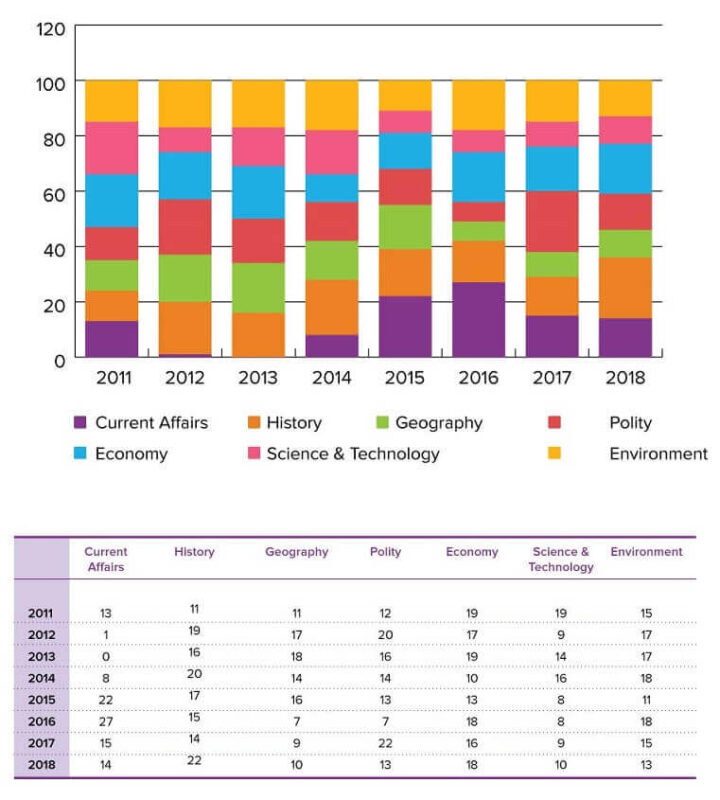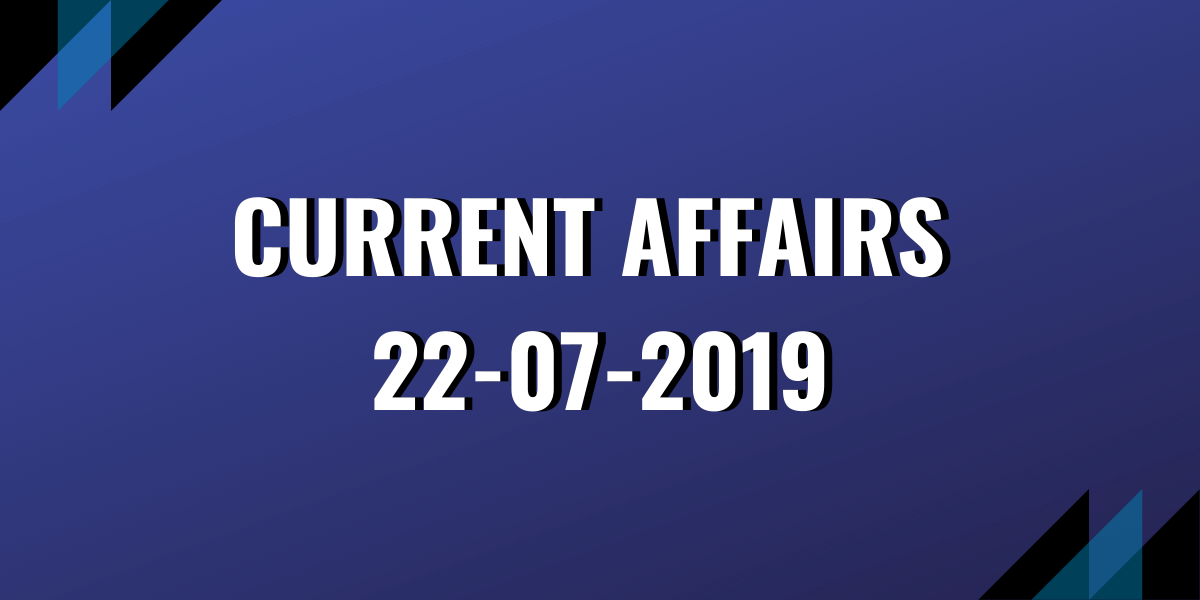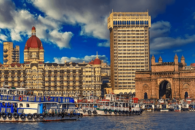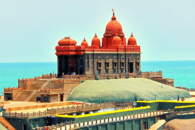Highlights |UPSC Exam Current Affairs 22-07-2019
Current Affairs and News (22-07-2019)- The following article contains all the updated events and news for IAS Preparation. Our daily IAS Current Affairs and News cover the most important topics to give precise information to the reader and IAS Aspirants.
- Vaccination for rotavirus
- Delhi takes a major share in electoral bonds
- DEFXPO – India’s mega Defence exhibition
- Revamp of Army Head Quarters (AHQ)
- The Right to Information (Amendment) Bill, 2019
Importance of Current Affairs in IAS Coaching
Watch Video – UPSC Exam Current Affairs 22-07-2019
Video Source – Shankar IAS Academy
find top institutes for IAS coaching
UPSC Exam Current Affairs 22-07-2019 are followed in the part below:
UPSC Exam Current Affairs and News Analysis (22-07-2019)
Vaccination for rotavirus
Part of: Main GS Paper II- Welfare schemes for vulnerable sections of the population
- Around 20 lakh youngsters in the Maharashtra State will be immunized against rotavirus.
- Every year, 3.34 lakh youngsters capitulate to diarrhoeal ailments in India, of which near one lakh kick the bucket of rotavirus looseness of the bowels.
- Immunization is a stage towards accomplishing the UN Sustainable Development Goal focus of decreasing Child (under 5 years) Mortality rate to 25 or less per 1000 live births by 2030.
Do You Know?
- India’s Under Five Mortality (U5MR) declined from 125 for every 1,000 live births in 1990 to 43 for every 1,000 live births in 2015.
- In 2016, India’s newborn child (0-1 year) death rate was 44 for every 1,000 live births.
- To accomplish full inoculation inclusion for all kids and pregnant ladies at a quick pace, the Government of India propelled “Mission Indradhanush” in December 2014.
- Under Mission Indradhanush immunization is being given against eight antibody preventable maladies broadly, for example, Diphtheria, Pertussis, Tetanus, Polio, Measles, serious type of Childhood Tuberculosis, Hepatitis B, meningitis and pneumonia brought about by Haemophilus flu type B; and against Rotavirus Diarrhea and Japanese Encephalitis in chose states and areas separately
Delhi takes a major share in electoral bonds
Part of: GS Prelims and Mains II – Polity; Governance issues
80.6% of the discretionary bonds purchased a year ago (₹5,851.41 crores) was reclaimed in New Delhi, where the central command of significant gatherings are found. This shows the plan is one-sided against local gatherings.
Extra concerns raised as for the Electoral bonds conspire
- Non-straightforward – namelessness based subsidizing plan as neither the giver reveals to which party it hosts gave nor the political get-together uncovers the wellspring of the bond.
- It opens up the plausibility of dark cash being and outside capital given to parties through shell organizations.
- May prompt Corporate catch of Politics: conspire got rid of as far as possible on corporate gifts to parties (7.5% of three years’ net benefits)
- Favors the decision party: as only it is in a situation to recognize the contributors and, in this way, very much set to abuse such data. (By and by discretionary Bonds are just accessible through Government-claimed SBI)
- May represent an imposing section hindrance to new contenders in the political field as this plan is accessible just to parties that won 1% of the votes in the first political decision
Do You Know?
- The underneath reports have prescribed State financing of races to build up a reasonable playing field for parties with less cash.
- Indrajit Gupta Committee on State Funding of Elections (1998)
- Law Commission Report on Reform of the Electoral Laws (1999)
- National Commission to Review the Working of the Constitution (2001)
- Second Administrative Reforms Commission (2008)
DEFXPO – India’s mega Defence exhibition
Part of: GS Prelims and Mains III – Defence
- Eleventh Defexpo will be held in 2020 at Lucknow.
- It is held biennially, the past two versions were held at Chennai (2018) and Goa(2016).
- It serves to exhibit India’s protection producing capacities, the advance fare of India’s safeguard frameworks and pulls in remote players to put resources into India.
- India is creating two-guard mechanical generation halls to advance the resistance part. One is Tamil Nadu (connecting Chennai and Bengaluru) and the other in Uttar Pradesh.
Revamp of Army Head Quarters (AHQ)
Part of: Main GS Paper III – Various Security forces and agencies and their mandate
Army has initiated the process of reforming its Headquarter structure, whose objective is to:
- Ensure holistic integration of all divisions of the army
- Enhance the operational and functional efficiency
- Optimize budget expenditure,
- Facilitate force modernization and
- Address aspirations of the army personnel.
(MAINS FOCUS)
POLITY/GOVERNANCE
TOPIC: General studies 2
- Indian Constitution—Historical Underpinnings, Evolution, Features, Amendments, Significant Provisions, and Basic Structure.
- Important Aspects of Governance, Transparency, and Accountability, E-governance- applications, models, successes, limitations, and potential; Citizens Charters, Transparency & Accountability and institutional and other measures.
The Right to Information (Amendment) Bill, 2019
Context:
- The administration acquainted in Loksabha the Right with Information (Amendment) Bill, 2019, which proposes to give the Center the forces to set the pay rates and administration states of Information Commissioners at focal just as state levels.
Concerns:
- Amendments have been proposed since 2006, just six months after the law was implemented and many times thereafter.
- The deliberate dismantling of this architecture empowers the Central government to unilaterally decide the tenure, salary, allowances and other terms of service of Information Commissioners, both at the Centre and the States
About the Right to Information Act:
- Article 19(1) of the Indian Constitution specifies that the Right to Information (RTI) is a part of the fundamental rights. It says that every citizen has freedom of speech and expression.
- In 1976, in the Raj Narain vs the State of UP, it was held by the Supreme Court that people cannot speak unless they know. Hence the Right to Information is embedded in Article 19
- RTI Act provides machinery for exercising this fundamental right.
- As per the RTI Act 2005, every citizen has the right to receive a timely response from the government for any information that is sought by them with respect to the functioning of the government.
- An RTI portal is created by the Ministry of Personnel, Public Grievances and Pensions in order to facilitate the process of RTI.
- Besides access to information related to RTI, published disclosures by various public authorities under the state and the central governments, it acts as a gateway for obtaining information on the details of first Appellate Authorities, Principle Information Officers, etc.
The basic objectives of RTI is
- Empowerment of the citizens
- Promotion of transparency and accountability in the functioning of the government
- Prevention and elimination of corruption
- Making democracy work FOR the people in its real sense.
- Under the RTI, every citizen is empowered to:
- Seek information / ask questions to the government
- Request for copies of government documents
- Inspect government documents and works
- Request for samples of materials of any government work
Importance of RTI:
- The RTI has been used brilliantly and persistently to ask a million questions across the spectrum — from the village ration shop, the Reserve Bank of India, the Finance Ministry, on demonetization, non-performing assets, the Rafale fighter aircraft deal, electoral bonds, unemployment figures, the appointment of the Central Vigilance Commissioner (CVC), Election Commissioners, and the (non)-appointment of the Information Commissioners themselves.
- The information related to decision-making at the highest level has in most cases eventually been accessed because of the independence and high status of the Information Commission.
- The RTI movement has struggled to access information and through it, a share of governance and democratic power.
- The Indian RTI law has been a breakthrough in creating mechanisms and platforms for the practice of continual public vigilance that are fundamental to democratic citizenship.
Recent moves of RTI:
- All the provisions related to the appointment were carefully examined by a parliamentary standing committee and the law was passed unanimously.
- Section 13 states that salaries, allowances and other terms of service of “the Chief Information Commissioner shall be the same as that of the Chief Election Commissioner”, and those of an Information Commissioner “shall be the same as that of an Election Commissioner”.
- The Bill amends Sections 13 and 16 of the Right to Information (RTI) Act, 2005. Section 13 of the original Act sets the term of the central Chief Information Commissioner and Information Commissioners at five years (or until the age of 65, whichever is earlier).
- Section 16 of the original Act deals with state-level Chief Information Commissioners and Information Commissioners. It sets the term for state-level CICs and ICs at five years (or 65 years of age, whichever is earlier).
- It was on the recommendation of the parliamentary standing committee that the Information Commissioner and CIC were made on a par with the Election Commissioner and the CEC, respectively.
- The mandatory pre-legislative consultative policy of the government has been ignored.
Major issues:
- The separation of powers is a concept which underscores this independence and is vital to our democratic checks and balances.
- When power is centralized and the freedom of expression threatened no matter what the context, democracy is definitely in serious danger.
- The Commission which is vested by law with status, independence and authority, will now function as a department of the Central government, and be subject to the same hierarchy and demand for deferential respect.
- Apart from Section 13 which deals with the terms and conditions for the Central Information Commission, in amending Section 16, the Central government will also control through rules, the terms and conditions of appointment of Commissioners in the States. This is an assault on the idea of federalism.
- The RTI community is worried. But the sword of Damocles is double-edged. It is an idiom originally used to define the hidden insecurity of an autocrat. Questions are threats to unaccountable power.
Conclusion:
- The RTI has unshackled millions of users who will continue to use this democratic right creatively and to dismantle exclusive power.
- The RTI has been and will be used to withstand attacks on itself and strengthen the movement for transparency and accountability in India.
- The RTI has resulted in a fundamental shift — empowering a citizen’s access to power and decision-making. It has been a lifeline for many of the 40 to 60 lakh ordinary users, many of them for survival.
Connecting the dots:
- Has RTI been successful in bringing transparency into governance? Critically evaluate.
- Don’t you think Right to Information (RTI) stifles decision making? Critically examine.
- The RTI in its current form and shape requires certain changes to make it more effective. Do you agree? Substantiate.
(TEST YOUR KNOWLEDGE)
Q.1) Consider the following statements about Mission Indhradhanush
- Its goal is to ensure full immunization with all available vaccines for children up to two years of age and pregnant women
- It is being implemented by the Ministry of Women and Child development
Which of the following statements is/are correct?
- 1 only
- 2 only
- Both 1 and 2
- Neither 1 nor 2
Q.2) Consider the following statements about Electoral Bonds
- It can be purchased only from Domestic Systemically Important Banks (D-SIBs)
- Interest will be given by the banks on these bonds.
- Electoral bonds will be valid till the next Lok Sabha elections from the date of purchase.
Which of the following statements is/are not correct?
- 1 and 2 only
- 2 and 3 only
- 1 and 3 only
- 1,2 and 3
Q.3) Indrajit Gupta committee has given its report regarding
- More devolution of powers to Panchayat Raj Institutions
- State funding of elections
- Army restructuring
- Financial Inclusion
Q.4) Department of Border Management comes under which ministry?
- Ministry of Defence
- Ministry of Home Affairs
- Prime Ministers office
- Ministry of External Affairs
Q.5) Defence Industrial Corridors are coming up at which state(s)?
- Uttar Pradesh
- Tamil Nadu
- Gujarat
- Andhra Pradesh
Select the correct answer from the code given below:
- 1 and 2 Only
- 1,2 and 3 Only
- 2 and 3 only
- 1,2,3 and 4
Importance of Current Affairs in IAS Coaching

Check out more IAS Coaching Current Affairs
Also, Check Out the All the Details about the IAS Exam










